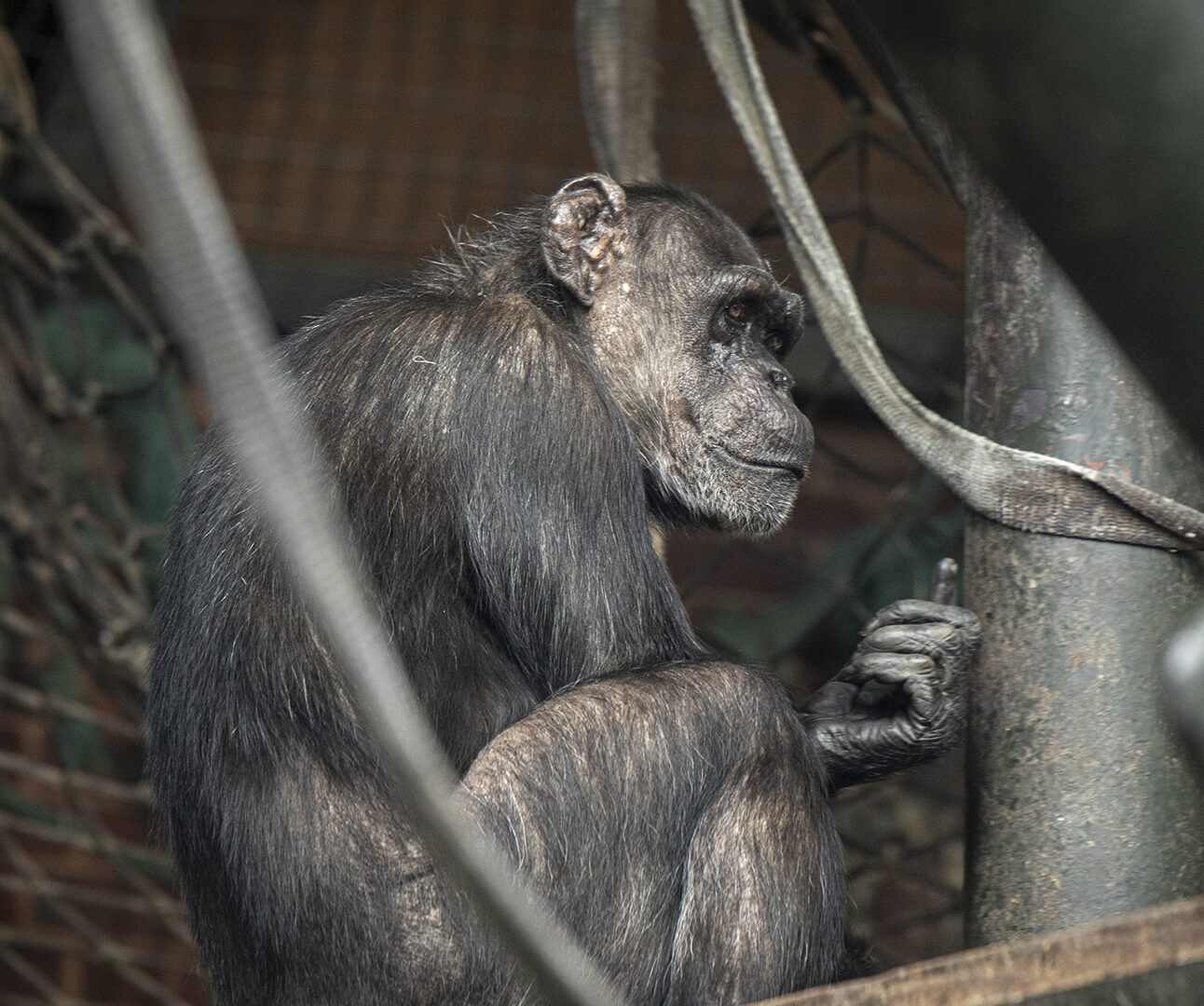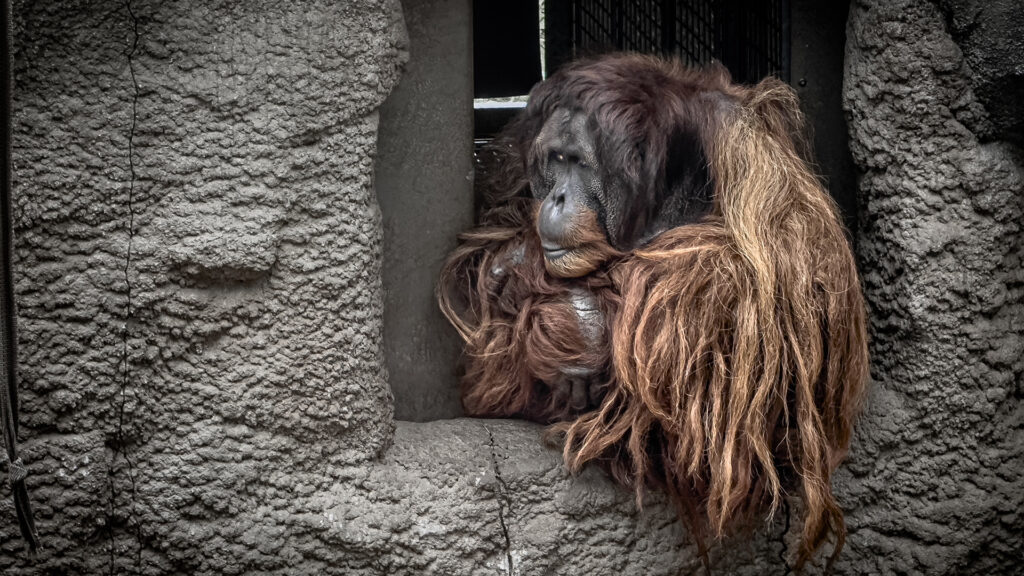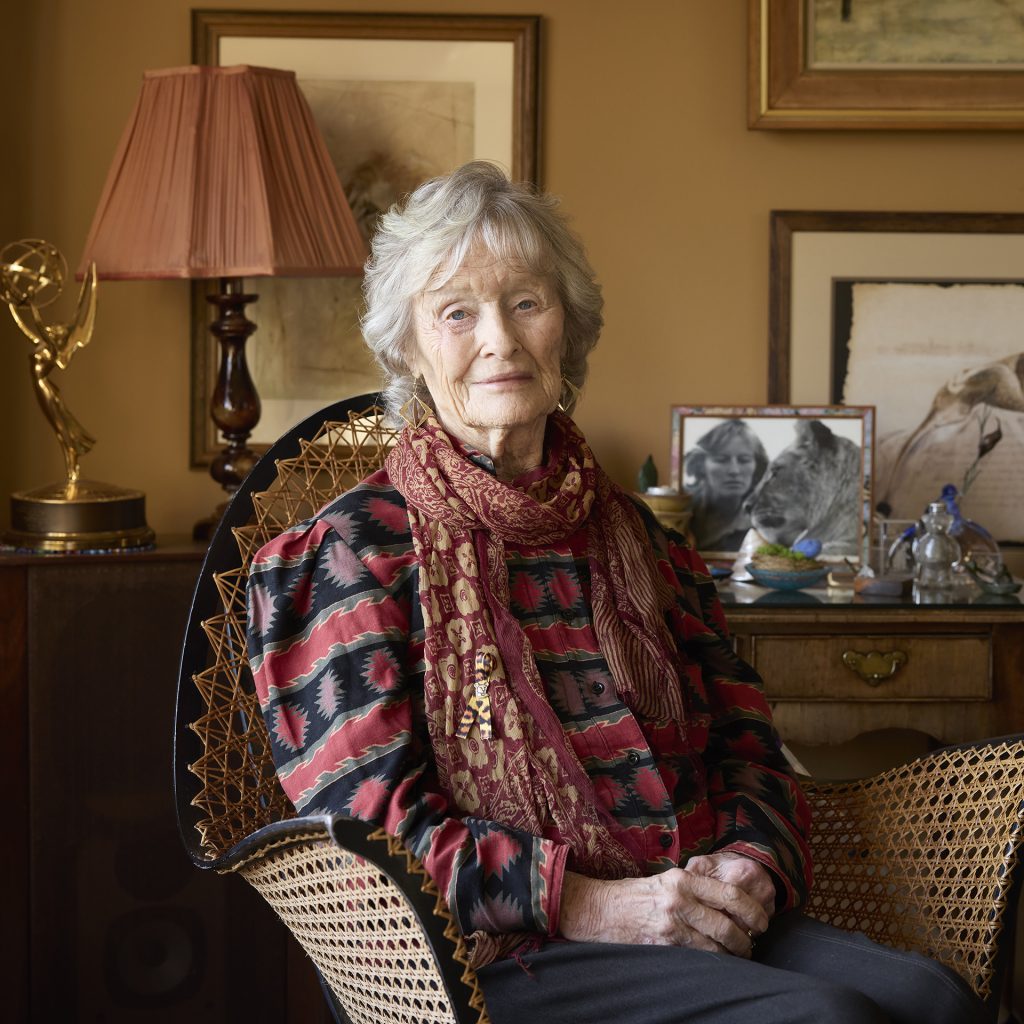The biological needs, learning opportunities and social interactions of great apes cannot be fully catered for in a zoo. Many natural behaviours and complex social interactions can never be expressed in a captive environment; their lives are compromised at every turn. Where they are, who they live and mate with, what and when they eat, and where they sleep, are all dictated by people. The small enclosures in zoos compared to their expansive natural home ranges, and the lack of environmental complexity in those enclosures, are real causes for concern.
Great apes spend time in the wild foraging, nest-building, and interacting with family members, thereby building their physical, social and mental skills. All too often in zoos they are kept in unnatural social groupings with little or nothing to do and cannot easily escape the constant gaze of people.
The frustration from a lack of opportunity to exercise autonomy and choice and express normal behaviours often leads to so-called ‘stereotypical behaviours’ such as excessive grooming and self-mutilation, regurgitation of food, coprophagy (eating their own faeces), pacing, rocking, digit sucking, self-grasping, and extreme aggression or submission, which are rarely if ever seen in free-living wild great apes. Captive apes also suffer high rates of heart disease and obesity, and are vulnerable to infectious diseases from other animals or the people with whom they are in unnaturally close contact.
Breeding programmes for great apes in zoos can also result in traumatic births, high rates of stillbirths, maternal rejection and instances of infanticide.
There is a big difference between providing the basic necessities to keep great apes alive, and meeting their complex behavioural, social and psychological needs to keep them happy and healthy.
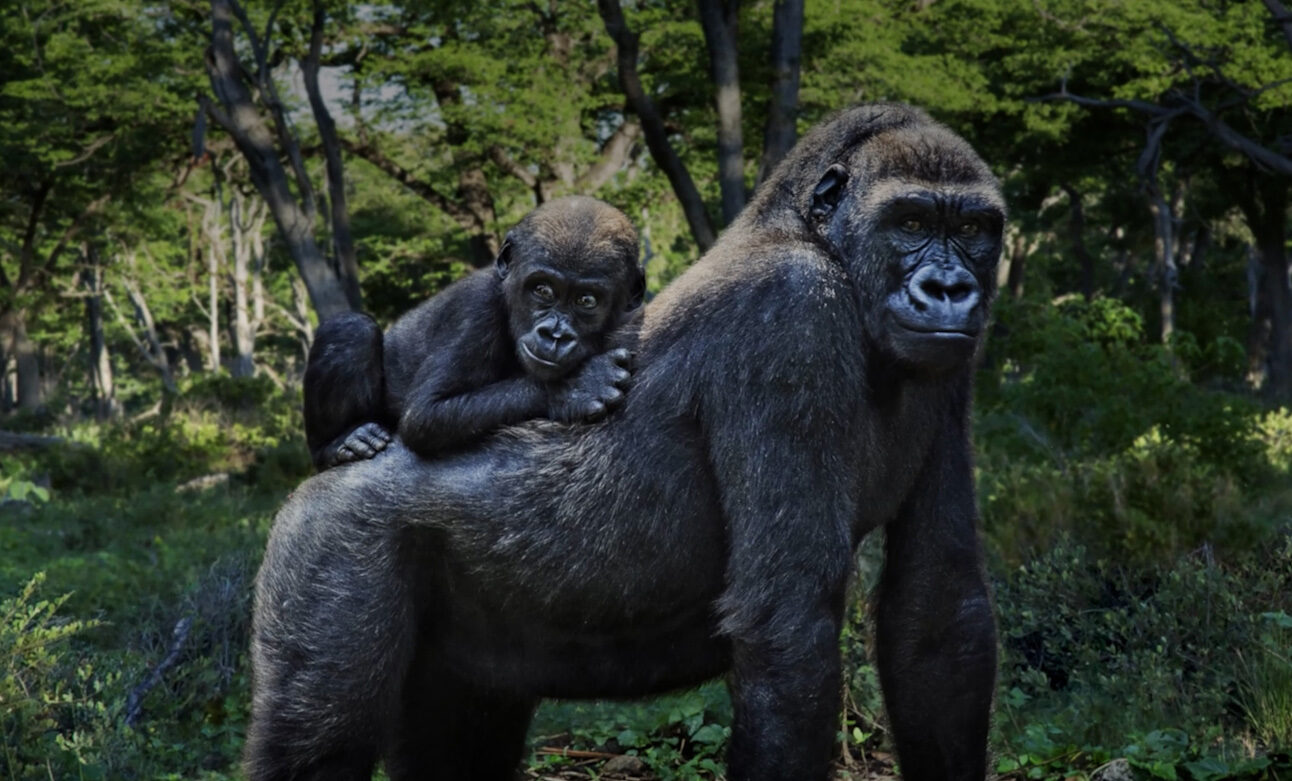

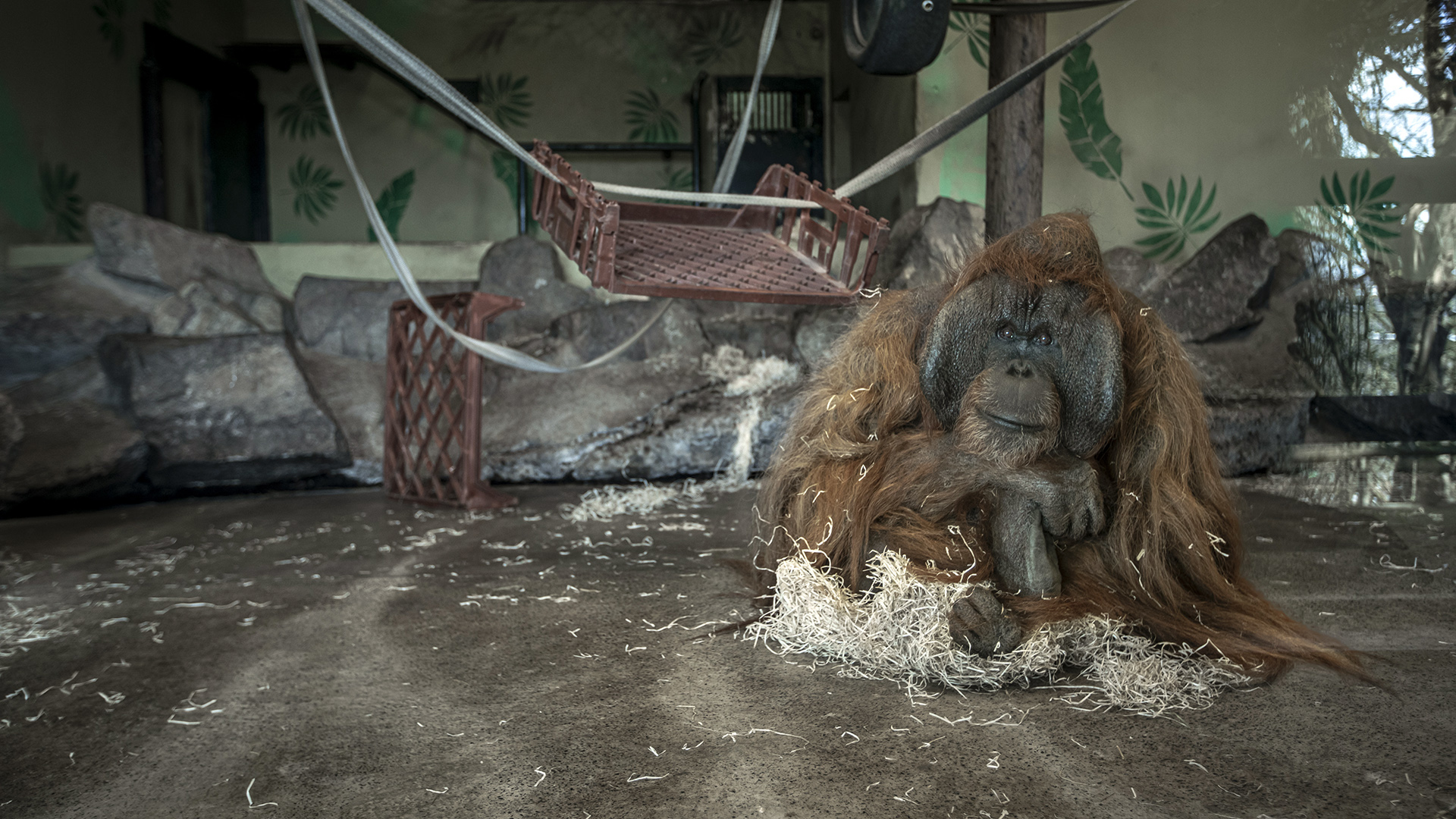
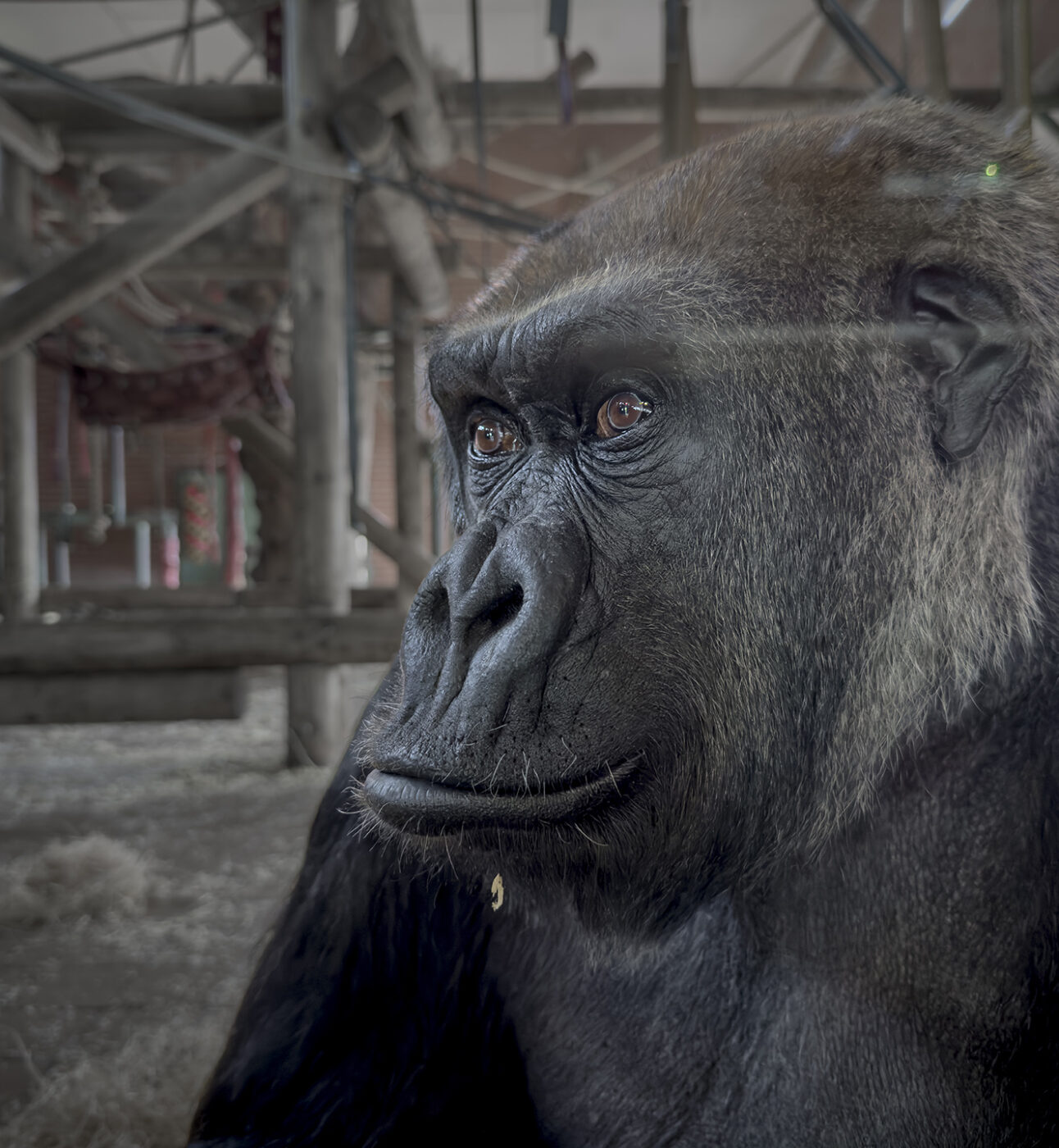
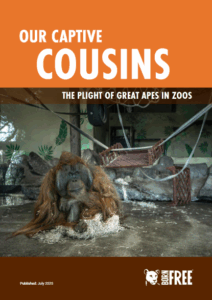 Born Free’s latest report, published in July 2025, is a hard-hitting exposé of the stark truth – keeping great apes captive in zoos is no longer ethically defensible.
Born Free’s latest report, published in July 2025, is a hard-hitting exposé of the stark truth – keeping great apes captive in zoos is no longer ethically defensible.